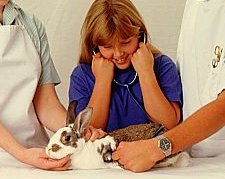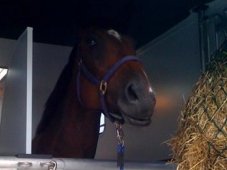Study Criticizes Vets’ Communication Style
The Argus Institute at Colorado State University has found that vets’ communication style becomes more paternal during problem visits – in which a health concern is being discussed – than in "wellness" visits, in which vets focus on building a relationship with their client. In problem visits, vets conversed predominantly about medical topics, meaning that they may have missed out on gathering concerns from their client that could impact patient management and outcomes. The tone reflected stress as some veterinarians were perceived as hurried and some clients as anxious and emotionally distressed.
In general, vets engage their client as an active partner in caring for the health of their pet during wellness visits, so the pet owner participates in the visit and has an opportunity to voice his or her opinion. Vets were also found to communicate with a different tone, evident in more social talk, laughter, reassurance and compliments and twice as much interaction with the pet. The study found that during wellness exams, the expectations of the client and the veterinarians are easily set and met in which common topics – often easier for the client to grasp – are discussed such as weight management or behavior issues. When a problem impacts a pet’s health, the stakes are higher for both parties. Veterinarians are under more demand and stress to solve the health problem, particularly if the problem is challenging or outside of their comfort level. Clients are under more stress as well because their pet is sick and important and difficult decisions must be made.
"We found a marked difference in the communication style of most veterinarians in problem versus wellness appointments, which swing from a relationship centered to a paternalistic style, respectively. You might ask ‘so what?’" said Dr. Jane Shaw, director of the Argus Institute. "Because the challenge in problem appointments is that veterinarians may miss an opportunity to create a partnership with the client a in caring for their pet – which can be key to the pet’s recovery, and strengthen the relationship with their client."
"We know that paternalism is not as an effective of an approach for gaining results. Without engaging the client in a conversation about their pet and obtaining their opinion, they aren’t as likely to follow through on home care. They also are not as likely to build a strong relationship – and subsequent loyalty – to their veterinarian," said Shaw. "To achieve successful results veterinarians can empower their clients as partners by supporting their emotions, understanding their expectations and reaching a mutual agreement during problem appointments as well as during wellness appointments. Society is changing, animals are regarded as family members, and clients expect a different level of service from the veterinarians. People want to interact with their veterinarians and be a part of their pet’s veterinary care."
Shaw says that the solution to the problem is for the veterinarian to ask open-ended questions during the appointment, encouraging the client to open up and share their observations – thus collaborating with the veterinarian in their pet’s care. Shaw also encourages veterinarians to explore their client’s life in a broader context during problem appointments to help them gain an understanding of the pet’s illness.









